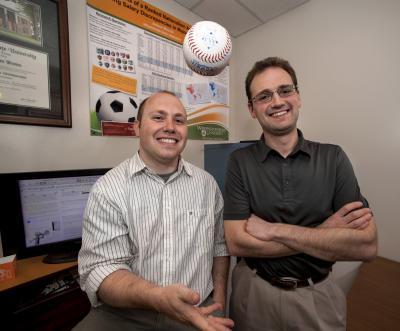Pundits are wrong more often than they are right but when preaching to the faithful, being accurate is less important than being confident. It's no different in politics or sports or business shows.
You often choose to be accurate - or be popular.
"In a perfect world, you want to be accurate and confident," says Jadrian Wooten of Washington State University economics program, who co-wrote a paper on the subject with Ben Smith, a fellow economics graduate. Smith originally wanted to test the accuracy and confidence of stock market pundits, taking inspiration from stock watcher and perpetual CNBC yeller Jim Cramer.
But stock predictions rarely come with a date at which one could say a pundit was right or wrong. Sporting events do, so Smith made a software program to sort through more than 1 billion tweets for predictions of the 2012 baseball playoffs and World Series and the 2013 Super Bowl. The program pulled out tweets with team names, nicknames and expressions commonly associated with predictions, like "beat."
Where they might rate the confidence of a television pundit by how loudly he or she yelled, a scale of word strength pegged words like "vanquish," "destroy" and "annihilate" as expressions of confidence. Their hypothesis: Pundits have a false sense of confidence because that's what the public, seeking to avoid the stress of uncertainty, craves.
"They're trading away some of their accuracy to be a Jim Cramer," says Wooten. "'I might not be right all the time but I can yell louder than this other guy.'"
Wooten and Smith looked at both professional pundits - celebrities with verified Twitter accounts - and amateurs claiming some sports expertise. Both were worse at predicting than the 50-50 odds of a coin toss. Professionals were right 47 percent of the time, a hair better than the 45 percent accuracy of amateurs.
But the professionals were more confident, scoring a .480 confidence rating to the amateurs' .313.
And confidence pays - far better than accuracy.

Ben Smith, right, and Jadrian Wooten analyzed a billion tweets to demonstrate that pundits are more popular if they are confident than correct. Courtesy of Washington State University
"If you had to pick, being confident will get you more followers, get you more demand," says Wooten.
If a professional pundit accurately predicted every game of the baseball playoffs and series, Wooten and Smith estimated his or her Twitter following would increase 3.4 percent. An amateur would get 7.3 percent more followers.
But a professional whose confidence knows no bounds would increase his or her following by nearly 17 percent and an amateur would see a nearly 20 percent rise in followers.
Nate Silver, the former baseball statistician and current New York Times political blogger, is considered an exception. He's cautious and, like all political statisticians who averaged polls in the 2012 presidential election, called all 50 states accurately, making him accurate. He's also popular.
But by and large, Smith and Wooten say pundits get a better audience through confidence and the excitement it generates.
"There is some psychological literature on the idea that people hate uncertainty," says Smith. "The fact that people don't like uncertainty would suggest that they don't like the idea of a Nate Silver sort of person standing up there and saying, 'I'm only 90 percent sure.'"
"I like to think of it like a roulette wheel," says Wooten." If you have somebody just placing bets, that person is kind of boring. But if you have someone going, 'Oh, yeah! It's red!' and they are confident, that's the person that you are interested in."
They outlined their findings earlier this year at the 50th Annual Meeting of the Academy of Economics and Finance.






Comments